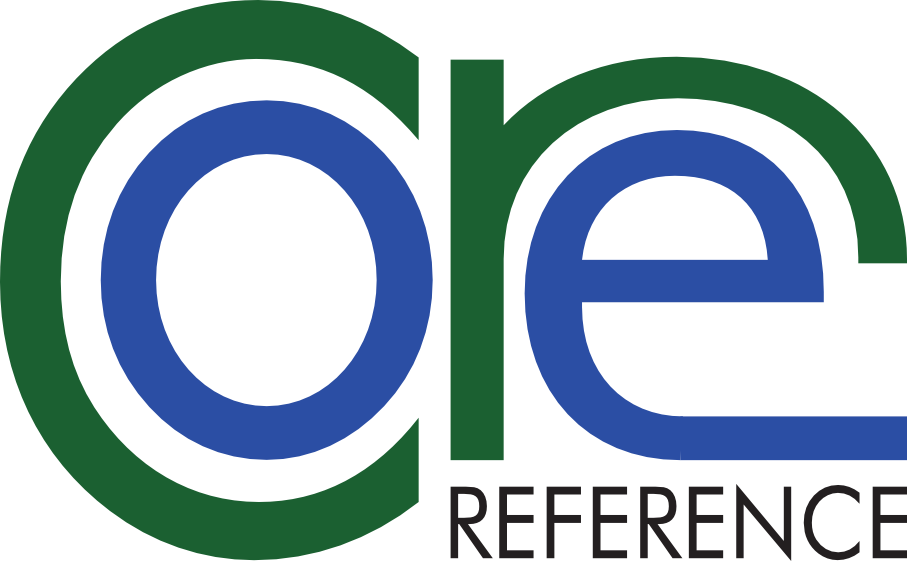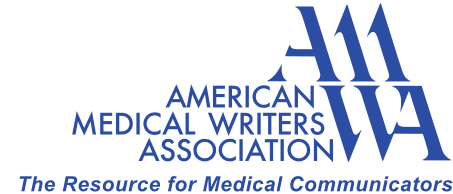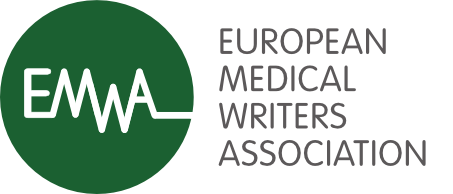December 2022
Medicines and Vaccines
ICH
A helpful summary article titled "eCTD 4.0: What is changing? And how do these changes impact submission content preparation?" has been posted on the ‘Regulatory Professionals Community’ group page on LinkedIn.
CTR and CTIS
- The EMA continues to work to improve CTIS and there were 3 releases in December 2022: Release Notes December 2022. From EMA: “By the time the use of the system becomes mandatory for all new applications (31 January 2023), the aim is to have no blocking issues in the core CTIS processes. The Agency has invested additional resources to achieve this goal.”
-
The CTIS Sponsor Handbook has been updated: CTIS - Sponsor Handbook v.3.00, dated 29 November 2022. Updates include the following new sections:
- Marketing Authorisation Holder (MAH) group of users
- How to get a clinical trial application started in CTIS
- How to create a transitional trial in CTIS
- How to manage trials transitioned to the CTR in CTIS.
EMA data protection notice: Records of data processing activity (public) regarding the processing of personal data in the Clinical Trials Information System (CTIS), dated 16 November 2022. Includes the purpose of the CTIS data processing activities along with a description of categories of persons whose data EMA processes and a list of data categories.
-
EMA has organised three Clinical Trials Information System (CTIS) walk-in clinics in Q1 2023. Walk-in clinics provide a platform for sponsors to receive practical advice on the CTIS system functionalities by asking questions to CTIS experts. EMA has scheduled three walk-in clinics on the below dates:
-
EMA has organised three sponsor end-user training programs on the below dates for sponsors (commercial and non-commercial) and CROs. These training programs support sponsor user preparedness for the new CTIS by demonstrating the functionalities of the system, such as user management, how to submit an initial application as well as substantial and non-substantial modifications. Also, topics like how to manage the life cycle of a clinical trial and how to apply deferral rules and respond to a Request for Information (RFI) will be covered.
- EMA has shared the 12th issue of the ‘Clinical Trials Highlights’ newsletter. (December 2022) Insights on clinical trials topics, including ACT EU and CTIS are included in this issue. As reported in this issue the EMA Management Board had an update on the implementation of the CTR and the operation of CTIS and will be receiving weekly updates on the progress towards further system stabilisation. Updates will start on Friday 16 December and stakeholders will be kept regularly informed. The published highlights of December 2022 meeting includes news on the implementation of the CTR.
- As we approach the holidays, a winter clock stop will be in place for all clinical trial applications (CTAs) that are under evaluation in CTIS. All timers within the evaluation of each CTA will stop on 22 December 2022 at 23:59:59 CET and will resume on 8 January 2023 at 00:00:01 CET. The due dates for any tasks will automatically fall on dates after this winter clock stop. Information only, no link.
-
A public “CTIS Event on Readiness for Mandatory CTR use from 31 January 2023” will be held on Friday, 20 January 2023 from 10:00–13:00 CET. A Programme Committee with representatives from all stakeholder groups has been formed to set the agenda for the discussions. The event will be broadcast, with further details to be provided in the future issues of the newsflash. Information only, no link.
UK and MHRA News
- New post from MHRA - on the MedRegs blog: ‘When is a clinical trial halt not a clinical trial halt?’
FDA Guidance and News
- FDA has published draft guidance updating its principles for assessing in vivo or in vitro bioequivalence (BE) studies for investigational new drugs (INDs), new drug applications (NDAs), abbreviated new drug applications (ANDAs) and supplements to these applications. The update replaces a previous version (February 2001) and adds new topics such as assessing the BE for narrow therapeutic index (NTI) drugs and highly variable drugs, using adaptive trial designs, and statistical approaches for filling in missing patient data. The guidance addresses dealing with missing data caused by events such as a subject’s refusal to continue in the study, the emergence of adverse events, or the subject’s failure to meet scheduled appointees for evaluation. FDA advises sponsors to consult the International Council for Harmonization’s (ICH) E9(R1) guideline introducing the concept of estimands for handling missing data. Comments due 4 Feb 2023.
- The recording and slides of the October 27, 2022, ClinicalTrials.gov Modernization and Beta Sites Progress webinar are available on the ClinicalTrials.gov Modernization page. The webinar featured an update on the modernization effort, demonstrations of the ClinicalTrials.gov Beta and Protocol Registration and Results System (PRS) Beta websites, and a live Q&A.
Also available is the Report on the ClinicalTrials.gov Modernization Effort, Summary of Progress: 2021-22, which presents an update on the ClinicalTrials.gov Beta and PRS Beta websites, progress made on the modernization strategic goals, the modernization communication strategy, future modernization activities, and more. - FDA’s December 2022 Final Guidance ‘
Pharmacokinetic-Based Criteria for Supporting Alternative Dosing Regimens of Programmed Cell Death Receptor-1 (PD-1) or Programmed Cell Death-Ligand 1 (PD-L1) Blocking Antibodies for Treatment of Patients with Canceris now available. -
FDA’s December 2022 Final Guidance ‘E19 A Selective Approach to Safety Data Collection in Specific Late-Stage Pre-Approval or Post-Approval Clinical Trials’ is now available.
- Industry groups including the drug industry group PhRMA and Biotechnology Innovation Organization (BIO) have asked the US FDA to align its revised re-drafted guidance on paediatric clinical pharmacology studies (issued Sep 2022) with international guidance (including ICH’s E11A) as well as other FDA guidances. The groups also asked for more clarity on several aspects of the guidance.
- The latest release of ClinicalTrials.gov Beta streamlines the search experience and adds a Record History tab. To learn more, please read the latest Release Notes available on ClinicalTrials.gov Beta under “About”.
Transparency and Disclosure Resources and News
- PHUSE’s Data Transparency Winter Event will be held in February 2023 and the the US Connect Event will be held in March 2023. Check the PHUSE 2023 calendar to plan your attendance.
-
Join the open session of the CORE Reference Project at EMWA’s Prague Conference, Friday 12 May 2023, 17.15-18.15
Title: The CORE Reference Project - Value for the Global Regulatory MW Community
Abstract: The CORE Reference EMWA Special Project provides Continuous Professional Development (CPD) for regulatory medical writers through open access resources and intelligence dissemination on clinical study reporting and public disclosure of clinical-regulatory documents. The team will present a 60-minute open session including a full web tour, demonstration of the CPD resources, including the RPD content published monthly, insights on the ICH M11 Step 2 draft protocol template, an RPD update from Asia, and we will take questions from the audience.
Presenters: Chair, Sam Hamilton (Freelance); Committee - Alison McIntosh (Freelance), Vivien Fagan (IQVIA), Zuo Yen Lee (Caidya). - NEW OPEN ACCESS RESOURCE, 13 DEC 2022: The CORE Reference Project Team Compare TransCelerate CPT (v009) and Draft ICH M11 Step 2 Templates: A Comparison of Level 2 Headings
- Butcher et al. published a report on “Guidelines for Reporting Outcomes in Trial Reports: The CONSORT-Outcomes 2022 Extension”. This CONSORT-Outcomes 2022 extension of the CONSORT 2010 statement provides 17 outcome-specific items that should be addressed in all published clinical trial reports and may help increase trial utility, replicability, and transparency and may minimise the risk of selective nonreporting of trial results. More resources can be found here.
Development Strategy News
- FDA Statistician, Rebecca Hager, presented Recommendations and Considerations for Umbrella and Platform Trials at the Biopharmaceutical Applied Statistics Symposium (BASS) in late October 2022. The presentation provides definitions of master protocols; the types of master protocols executed during COVID-19; and recommendations related to randomisation, blinding, control groups, informed consent, multiplicity, results posting, and adaptive designs. Insight into FDA thinking regarding master protocols is shared, and the presentation also complements EMA's ‘Complex Clinical Trials’ Q&A document.
- JAMA published 2 articles that discuss, based on the situations of 2 marketed drugs, the issues and the role the FDA plays in overseeing drugs which are approved via non-traditional approval using surrogate endpoints: “Preapproval Promises to Voluntarily Withdraw FDA-Approved Drugs” by Lynch et al. and “The FDA Struggle to Withdraw Makena - Problems With the Accelerated Approval Process” by Aaron et al.
Medical Devices
Medical devices information is kindly compiled by Raquel Billiones.
General MDF and IVD Updates
- In early December, at the meeting of Employment, Social Policy, Health and Consumer Affairs Council (EPSCO) Council, the delay and challenges in the implementation of the EU MDR was addressed. This topic was also addressed in the opening remarks by Commissioner Stella Kyriakides.
- EUDAMED Update: The EU Directorate-General for Health and Food Safety released an update to the status of the functional specifications and the audit of the European Database on Medical Devices (EUDAMED).
Updates from the EU Medical Device Coordinating Group (MDCG)
Several new guidance documents were released in December 2022:
- MDCG 2022-21. Guidance on Periodic Safety Update Report (PSUR) according to the Regulation (EU) 2017/745 (MDR). The long-awaited guidance on MD PSURs has been released. Templates are provided as Annexes.
- MDCG 2020-19: Performance study application/notification documents under Regulation (EU) 2017/746. This guidance document provides guidance on performance studies for IVDs (ie, protocols for clinical studies for IVDs). Templates are provided as Annexes.
- MDCG 2022-20: Substantial modification of performance study under Regulation (EU) 2017/746. This guidance document describes the process for IVD performance study modifications (ie, protocol amendments in clinical studies for IVDs). Templates are provided as Annexes.
- MDCG 2022-18: MDCG Position Paper on the application of Article 97 MDR to legacy devices for which the MDD or AIMDD certificate expires before the issuance of an MDR certificate. Article 97 MDR covers MDD legacy devices that may not meet all MDR requirements but does not present an unacceptable risk to health and safety of patients, users or other persons, or to other aspects of the protection of public health. The guidance aims to achieve a common understanding of and a uniform approach to the application of Article 97.
- MDCG 2022-17: MDCG position paper on ‘hybrid audits’. The guidance provides a definition for hybrid audits and clarifications with respect to how hybrid audits can be used under MDR and IVDR.
Several existing guidance documents were updated:
1. Manual on borderline and classification for medical devices under the EU MDR and IVDR has been updated. The V2 of the manual covers classification of borderline products such as those between mainstream MDs and IVDs, or between MDs and medicinal products, including advanced therapy medicinal products (ATMPs).
2. MDCG 2022-4 Rev.1: Guidance on appropriate surveillance regarding the transitional provisions under Article 120 of the MDR with regard to devices covered by certificates according to the MDD or the AIMDD.
Updates from US FDA
- Check out this resource from the US Federal Trade Commission on the development of mobile health apps.
- The US FDA released the latest “Report on risks and benefits to health of non-device software functions”.
Updates from Health Canada
- Health Canada released a revised List of Recognized Standards for Medical Devices. Several ISO, ASTM and IEC standards were added to the list.
Updates from Switzerland
- In November, the Swiss Parliament gave instructions to the Federal Council to adopt national laws that will enable recognition of medical devices certified by the US FDA. This will pave the way for sustainably supplying the Swiss population with quality-tested medical devices outside of the EU MDR.
Updates from the UK
- Check out this independent report to the UK government by Regulatory Horizons Council on the regulation of artificial intelligence as a medical device.


